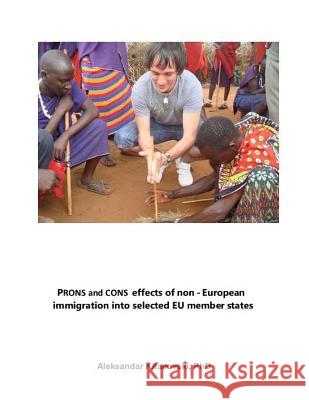PROS and CONS effects of non - European immigration into selected EU member states » książka
PROS and CONS effects of non - European immigration into selected EU member states
ISBN-13: 9781499552263 / Angielski / Miękka / 2014 / 88 str.
Mass non-European immigration to the EU is a process that has shaped and continues to shape Europe's demographic development as well as Europe's societies. Started with little public debate it has become a part of Europeans everyday life. Some member-states have been a more preferred destination to others due to various reasons. These might be simply a historical consequence of previous experience with certain countries, ex-colonies for example, or simply economic, language, social and even cultural reasons. Although immigration occurred due to necessity after the end of World War II and immigrants helped to restore the "glory" of Europe, with time they have become an integral part of it and political as well as social debate has emerged as to whether this need for immigrant workforce did not trigger a process that can no longer be reversed. Recent surveys suggest the majority of Europeans consider that there are "too many immigrants." Immigration has been on EU agenda for some time now but some questions still remain unanswered: for instance has been done enough in order to ensure a positive outcome of the process for all parties involved in it? Europe is a magnet for immigrants and with growing differences between prospering EU countries and poor surrounding regions there is little belief that immigration flows will decrease. Furthermore it is an issue since each member-state decides its own immigrant scheme and it is up to the state to integrate the newcomers. What has been accomplished, what results did the policies implemented bring and what more can be achieved is what I will try to present in my book.
Zawartość książki może nie spełniać oczekiwań – reklamacje nie obejmują treści, która mogła nie być redakcyjnie ani merytorycznie opracowana.











